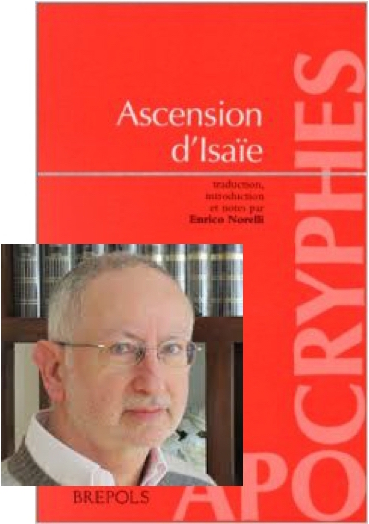Roger Parvus posted comments relating to the relationship between Paul’s letters and some things we read in the Ascension of Isaiah. (Recall that the Ascension of Isaiah is a two part text consisting of the Martyrdom of Isaiah and the Vision of Isaiah, and was interpreted by Earl Doherty as a piece of evidence for early Christian belief in a crucifixion of Jesus in the lower heavens.) I have been wading my way through various studies on the document and it is slow going because I find myself struggling through machine translations much of the time. I have as a result become open-minded to possible interpretations that may compete with Doherty’s initial proposals.
Roger Parvus has posted two major series on Vridar:
He’s been doing some more thinking about things since then and I found the following two comments of his thought-provoking.
Paul regularly appeals to revelation through Scripture. And as Doherty notes:
“The strong implication is that, if the key phrases in Paul are his own voice and not an interpolation, Paul must have had in mind something different in regard to Christ than simply being ‘born’ in the normal sense.” (Jesus Neither God Nor Man, p. 207).
So I am still quite open to the possibility that the Scripture Paul had in view was the Vision of Isaiah’s pocket gospel. Its Jesus is not really born in the normal sense. As Enrico Norelli puts it:
“If the story is read literally, it is not about a birth. It’s about two parallel processes: the womb of Mary, that had enlarged, instantly returned to its prior state, and at the same time a baby appears before her— but, as far as can be determined, without any cause and effect relationship between the two events.” (Ascension du prophète Isaïe, pp. 52-53, my translation)
At this point in general discussion Tim reminded me of Herman Gunkel’s view that Revelation 12 speaks of a birth of a saviour in heaven in Creation and Chaos in the Primeval Era and the Eschaton. (For a criticism of Gunkel’s hypothesis see Creation and Chaos: A Reconsideration of Hermann Gunkel’s Chaoskampf Hypothesis see Scurlock and Beal’s Creation and chaos : a reconsideration of Hermann Gunkel’s Chaoskampf hypothesis.)
Yes, there are grounds to suspect that Paul knew some version of the Vision of Isaiah. But my suspicions go further than that. I suspect Paul’s gospel was the Vision of Isaiah. His gospel was not just a message; it was a message based on a specific text: the Vision of Isaiah. And of course, if that was the case, it would seem to follow that he wrote the Vision, for he says in Galatians that he received his gospel by revelation and not from any man.
Continue reading “Paul’s and Isaiah’s Visions — A Possible Connection”

